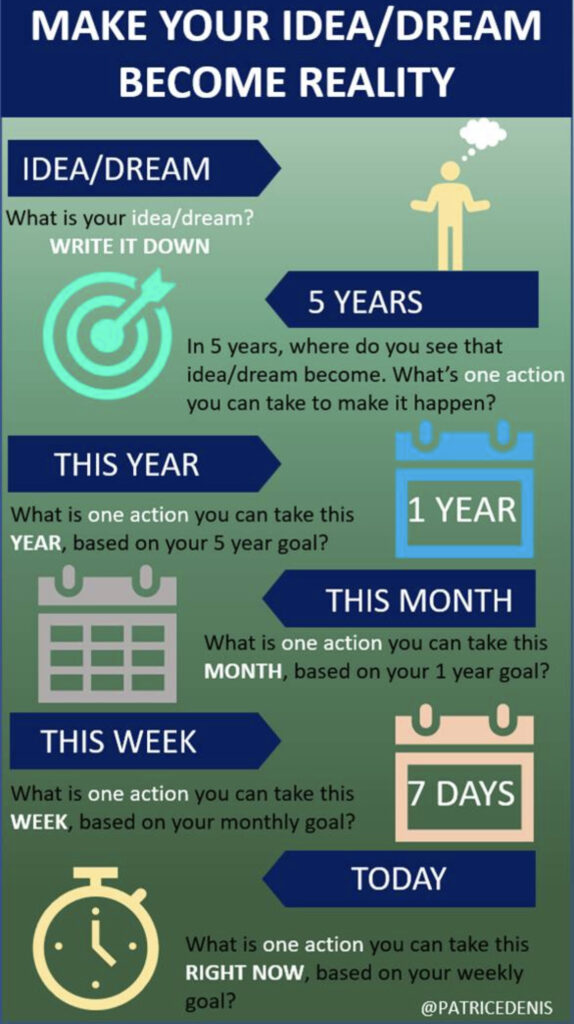Are you struggling to save money and are not sure of any money saving strategies? Do you find yourself stuck in the cycle of living paycheck to paycheck? If so, don’t worry. You’re not alone. Supercharge your saving is not rock science as everyone can learn how to do it.
According to a recent article from Zippia, 42% of American have less than $1000 in saving. Another article by channel 9 indicated that Australian are finding it hard to save with only $743 saving per month. It means that most people are not able to save money or plan for their future financial goals.
However, by implementing some proven money saving strategies, you can break free from this cycle and start building your wealth today.
Imagine being able to pay off all your debts, take vacations whenever you want without worrying about finances or have enough saved up for retirement. By learning these tested money saving strategies, you will be on your way to transform your relation with money.
Let’s begin exploring some of the best money saving strategies that can help transform your financial life and lead you towards greater financial freedom!
KEY TAKEAWAYs
| Key Takeaway | Description | Benefit |
| Automate Your Savings | Implement automated savings methods, such as automatic transfers and app-based tools, to save money effortlessly without much thought. | Easily allocate a certain amount of money towards savings goals and build wealth over time. |
| Reduce Expenses by Cutting Back and Being Creative | Cut back on small expenses, find creative solutions, reduce food waste, review subscriptions, and cut down on non-essential spending to save money without feeling deprived. | Significantly reduce spending over time and make smarter shopping choices, leading to long-term savings. |
| Create a Budget and Track Your Spending | Develop a budget to take control of your spending, prioritize expenses, and make strategic decisions about your income. Track your spending to identify areas for improvement. | Achieve financial stability, make informed financial decisions, and reach savings goals. |
| Maximize Credit Card Rewards and Optimize Banking | Take advantage of credit card rewards programs and use online savings accounts to increase savings and optimize banking activities. | Earn rewards, benefit from higher interest rates, and secure better financial benefits. |
| Practical Saving Tips for Everyday Life | Incorporate practical saving tips into your daily routine, such as making a shopping list, having nights in, utilizing resale platforms, and setting up smart alerts. | Save money through conscious decision-making, lifestyle changes, and responsible financial habits. |
1. Automate Your Savings
Saving money is often easier said than done, especially when we live in a society where instant gratification is king. As soon as our paycheck hits our bank account, we tend to spend it all without much thought about our long-term financial goals. The rise of automated saving techniques or direct debit, has never been easier to save money without even thinking about it as a money saving strategy.
Let’s explore how easy it is.
- Setting up automatic transfers
One of the best ways to get started with automated savings methods is by setting up automatic transfers from your checking account into your savings account every month.
This way, you can allocate a certain amount of money towards your savings goal without having to think about it each month.
- Using app-based tools
Another popular method for automating savings is using app-based tools that automatically round up each purchase you make and transfer the difference into your savings account.
This technique is effective because it makes saving so easy that you are hardly aware it’s happening.
- Automated savine platforms
There are also platforms designed specifically for automating investments.
Platforms like Acorns, which allow users to invest spare change from purchases made through linked debit or credit cards, are great options for those who want to further their financial goals.
- Automatic payroll deductions
Of course, there are a variety of other techniques you can use to automate your savings outside of basic transfers or apps.
For example, many employers offer automatic payroll deductions towards retirement funds like 401ks which can be instrumental in building wealth over time.
It’s always worth checking to see if this option is available at your job since this technique doesn’t require any effort on your part. That way, everything else falls magically into place once funds are deducted from your paycheck before taxes.
Automated saving techniques provide a simple and efficient way for people at all economic levels and positions to grow their wealth effortlessly. So if you’re working toward paying off debt or just looking at securing financial freedom within sight distance, consider setting up an Automated Savings plan today!
2. Reduce Expenses by Cutting Back and Being Creative
In today’s world, many of us are looking for money saving strategies wherever we can. Fortunately, there are plenty of simple and creative ways to reduce expenses without feeling deprived as a money saving strategy.
Cutting back on small spends
One effective way to lower your spending is by cutting back on small spending. It includes everything from buying coffee every day to taking rideshares rather than walking or biking short distances. By being more mindful of our daily decisions and questioning whether each expense is vital, we can save a surprising amount over time.
Finding creative solutions
Another technique for reducing expenses is by finding creative solutions for everyday needs. For example, repurposing old clothing or furniture instead of buying new items or using discounted gift cards when making purchases could result in significant savings.
Reducing food waste
Reducing food waste is also a great way to reduce unnecessary expenses. By planning meals ahead, only purchasing what you need and storing leftovers appropriately, you will see not only a reduction in spending but also make smarter shopping choices.
Reviewing subscriptions
Reviewing subscriptions such as box memberships or luxury magazine subscriptions could help you save considerable amounts annually, especially if left unchecked year after year, this will surely drain your resources.
Cutting down on non-essential
Cutting down on non-essential spending is another viable solution for effectively lowering expenses. Avoiding extravagant shopping sprees or eliminating leisure trips in favour of staycations are just two examples of how cutting out extras that don’t align with core values or goals might lead to long-term savings adding up as the years go by.
We all want to be smart with our money, and trying any of these techniques – cutting back, upcycling/repurposing belongs at the centre of financial strategies employed for cost reduction.
This will help to promote creativity and sustainability at the same time demonstrating that inexpensive ways do exist for both functional purposeful staying attentive even through dry times ensuring future financial security one proven saving strategy at a time.
3. Create a Budget and Track Your Spending
Creating and sticking to a budget is one of the most effective to money saving strategies. By taking control over your spending and actively tracking where your money is going, you can identify areas where you can cut back and make strategic decisions about how best to use your income.
Budgeting
Budgeting involves creating a financial saving strategy outlining how much money you will spend on each category, such as housing, utilities, groceries or debt repayment, entertainment or leisure activities, and savings for future expenses. With a strict but flexible budget, it becomes easier to prioritize expenses and create a straight path towards reaching commonplace saving/savings goals.
Tracking spending
Tracking spending then entails carefully monitoring your actual expenditures as they happen throughout the month in real-time, checking for inconsistencies against projected forecasts set by your initial monthly budget plan. This ensures that any irregularities can be immediately rectified so it doesn’t eat into reserves intended for emergencies or required debts, fulfilling an overall end goal.
It’s important to remember that creating a budget is not a one-and-done process; it may change depending on current and individual circumstances. Financial planning requires regular check-ins with oneself, checking what aspects of the plan are succeeding while adjusting others wherever necessary.
Savings goals.
A saving goals is a goal or a saving outcome you would like to achieve after a period on time. The goal can be either short term or long term goals.
It is important to consider these questions below when creating your saving goals.
- Be specific. What are you saving for?
- Why are you saving for that thing. Why is it important to save for it?
- What differences will achieving this saving goal have to you?
- When will you start saving?
- How long will take you to achieve your saving goal?
- How much do you have to save you achieve your saving goal
- What challenges do you see impacting your saving goals?
- What will you tell your when you achieve your saving goals?
The infographic below help to break down that saving goal setting for you. It helps break it down from a big goal to achievable task.

4. Credit and Banking
The topic of credit cards can be very controversial, especially if you are not savvy with money. My role here is to provide you with all relevant information so you have a full picture. Of course, I will not recommend anyone to dive in if they can not control their credit card spending.
Nevertheless, here is the information. We know some credit cards offer a variety of rewards programs that can be mastered by savvy individuals to create tremendous value for themselves.
For instance, some reward categories could include cash-back offers on purchases made within select periods, like quarterly incentives courtesy of a bundled bonus points program or direct discounts when making certain transactions with specific retailers.
Additionally, some issuers offer limited-time promotions allowing new cardholders bonuses based on initial qualification criteria, such as spending a set amount or applying within a fixed window.
However, these offers are only beneficial if you use the credit card responsibly, and paying off balances at the end-of-each month. If not they will carry additional interest charges that would otherwise negate earned rewards leaving little to no purpose in earning those coveted miles/promotions.
The above is information only and I am not condoning the use of credit for money saving strategies.
Online saving account.
One way to take advantage of banking for greater savings is through using online savings accounts, also known simply as high-yield savings accounts.
These kinds of accounts tend to have higher Interest rates compared to traditional brick-and-mortar establishments. Such bank account holders reap considerable benefits- yielding higher dividends monthly whilst offering flexible/ manageable withdrawal options without penalties, unlike with certificate-based investments arriving at an overall impressive year-end yield which translates into significant nest egg growth.
Moreover, switching banks may seem daunting, but it can ultimately lead to securing better benefits. It gives the liberty of comparing interest rates, transaction fees and other services incorporated by different financial institutions assuring individual needs fit into their preferred choices and helping them optimize their finances considerably, leading towards long-term wealth.
5. Spending habits
Another crucial factor in optimizing daily banking activities is becoming disciplined with your spending habits.
Tracking your spending habit via your budget is a great way to monitor your spending and focus on saving money
It’s important to remember that maximizing credit card rewards and optimizing banking does not require any professional financial management skills.
Having greater self-awareness on spending patterns tweaked to fit definite early-onset/fixed achievable goals. It will help you to establish money saving strategies towards sustainable habits. With these techniques in mind, you can take advantage of every opportunity to save money and build wealth over time.
money saving strategies tips
Saving money doesn’t have to be a daunting task. Making small changes to your every day habits can add up to significant savings over time. Here are some practical saving tips that you can easily incorporate into your daily routine.
Shopping list
Firstly, every time before leaving the house, make sure to write down a shopping list and stick to it rigorously when shopping for groceries. Many people waste significant amounts of money on impulsive buys only realized when circumstances change, resulting in perishable goods either expiring or being improperly accounted for.
Having a night in
Additionally, having a night in with friends instead of going out is another great way to save money while still enjoying some quality time together. Instead of spending $50 or more on dinner and drinks at a restaurant, cooking meals from home and adding a movie night or game/arcade night can create fun-filled memories without impacting your monthly budget significantly, leaving much-needed cash on hand for emergencies or future objectives.
Resale platforms
Utilizing resale platforms like Facebook Marketplace, Craigslist, Gumtree or consignment shops is yet another smart avenue towards cost-cutting. Selling items that are no longer required/in use not only declutters one’s living space but also serves as an opportunity toward making extra cash by providing value-for-money pricing options whilst putting recyclable materials back into circulation.
Smart alerts
Furthermore, taking advantage of smart alerts available on mobile phones could be leveraged towards savings and financial planning if correctly set up appropriately depending on individual needs, i.e bill reminders.
Payment due dates, possible overdraft fees or fraudulent purchase notifications- these serve as cost-saving tools against penalties.
Otherwise incurred from forgetfulness/unauthorized transactions occurring through probable cybercrime incidents affecting bank account balances significantly leading towards overall improvement in entire financial wellness standing, thus promoting long-term ability toward future financial decisions.
Turning everyday scenarios into cost-saving events may seem insignificant initially but these proactive steps ultimately result in fostering responsible habits enabling higher yields, especially during lifestyle adjustments or incoming exigences. Practical saving tips start with conscious decision-making backed by common-sense lifestyle changes that accomplish more than just financial rewards – such as introducing a sense of discipline on the daily cash flow handling routine and considerations regarding long-term goals, unconsciously enforcing greater accountability in fundamental financial values, ensuring lifetime fulfilment/maintenance of specific purposes towards achieving lasting quality life moments.
Final Thoughts
Throughout my years of experience in personal finance, I have seen firsthand that financial wellness is possible for everyone. By adopting practical saving tips for everyday life, people can make meaningful strides towards financial stability and long-term wealth growth.
From writing shopping lists to utilizing resale platforms and having a night in with friends instead of going out, there are so many easy yet effective ways to save money without sacrificing the quality of life. Simple changes like these not only promote healthier habits but effectively support greater goals providing essential funds within reach – whether it’s building up emergency funds, paying off debt or managing living expenses.
Another crucial factor is automating savings or taking full advantage of credit card rewards while optimizing daily banking activities. These techniques may seem daunting at first glance, but once employed steadily as part of daily routines, it increasingly becomes evident that attaining such overall financial literacy and discipline through consistent momentum creates substantial lasting increased value over their lifetime whilst promoting deeper self-awareness in your individual spending/saving habits.
Overall choosing the best course of action toward maximizing each dollar spent requires greater intentionality acting as significant boosts aforementioned lifestyle adjustments which prove more feasible based on respective behavioural patterns- ultimately establishing a level of independence from unnecessary compromises yielding absolute satisfaction with reported evident results alongside the vast potential for even greater future possibilities.




